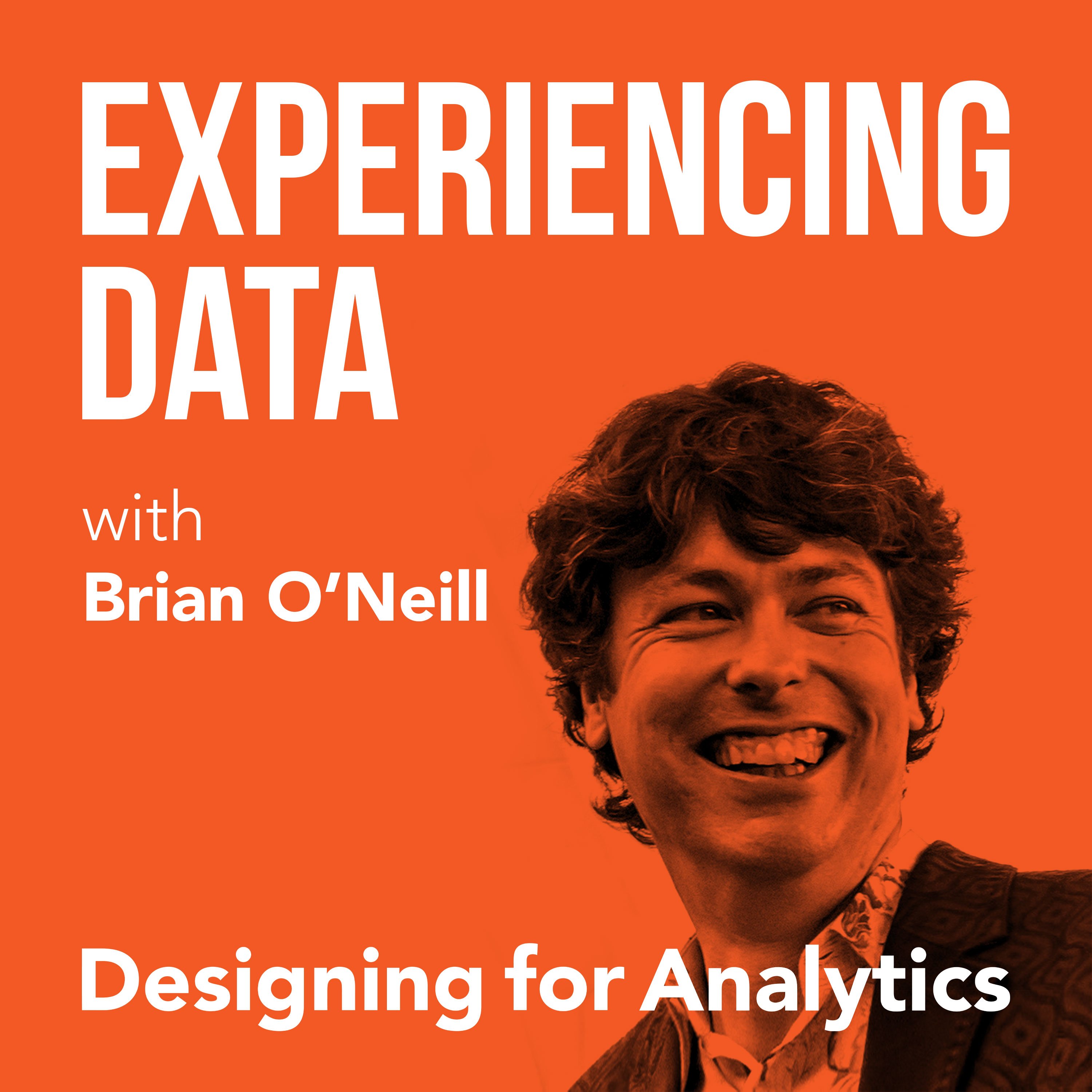
078 - From Data to Product: What is Data Product Management and Why Do We Need It with Eric Weber

Experiencing Data w/ Brian T. O’Neill (UX for AI Data Products, SAAS Analytics, Data Product Management)
Shownotes Transcript
Eric Weber, Head of Data Product at Yelp, has spent his career developing a product-minded approach to producing data-driven solutions that actually deliver value. For Eric, developing a data product mindset is still quite new and today, we’re digging into all things “data product management” and why thinking of data with a product mindset matters.
In our conversation, Eric defines what data products are and explains the value that data product managers can bring to their companies. Eric’s own ethos on centering on empathy, while equally balanced with technical credibility, is central to his perspectives on data product management. We also discussed how Eric is bringing all of this to hand at Yelp and the various ways they’re tackling their customers' data product needs.
In this episode, we also cover:
What is a data product and why do we need data product management? (01:34)
Why successful data product managers carry two important traits - empathy and technical credibility. (10:47)
A discussion about the levels of problem-solving maturity, the challenge behind delivering solutions, and where product managers can be the most effective during the process. (16:54)
A look at Yelp’s customer research strategy and what they are focusing on to optimize the user experience. (21:28)
How Yelp’s product strategy is influenced by classes of problems – and Yelp’s layers of experimentation. (27:38)
Eric reflects on unlearning and talks about his newsletter, From Data to Product. (34:36)
Quotes from Today’s Episode
“Data products bring companies a way to think about the long-term viability and sustainability of their data investments. [...] And part of that is creating things that are sustainable, that have a strategy, that have a customer in mind. And a lot of these things people do - maybe they don't call it out explicitly, but this is a packaging that I think focuses us in the right places rather than hoping for the best.”- Eric Weber (@edweber1)) (02:43)
“My hypothesis right now is that by introducing [product management] as a role, you create a vision for our product that is not just tied to a person, it's not just tied to a moment in time of the company. It's something where you can actually have another product manager come in and understand where things are headed. I think that is really the key to seeing the 10 to 20-year sustainability, other than crossing your fingers and hoping that one person stays for a long time, which is kind of a tough bet in this environment.”- Eric Weber (@edweber1)) (07:27)
“My background is in design and one of the things that I have to work on a lot with my clients and with data scientists in particular, is getting out of the head of wanting to work on “the thing” and learning how to fall in love with the customer's problem and their need. And this whole idea of empathy, not being a squishy thing, but do you want your work to matter? Or, do you just write code or work on models all day long and you don't care if it ships and makes a difference? I think good product-minded people care a lot about that outcome. So, this output versus outcome thing is a mindset change that has to happen.”- Brian T. O’Neill (@rhythmspice)) (10:56)
“The question about whether you focus on internal development or external buying often goes back to, what is your business trying to do? And how much is this going to cost us over time? And it's fascinating because I want [anyone listening] to come across [the data product] field as an area in motion. It's probably going to look pretty different a year from now, which I find pretty awesome and fascinating myself.”- Eric Weber (@edweber1)) (27:02)
“If you don't have a deep understanding of what your customer is trying to do and are able to abstract it to some general class of problem, you're probably going to end up building a solution that's too narrow and not sustainable because it will solve something in the short term. But, what if you have to re-architect the whole thing? That's where it becomes really expensive and where having a product strategy pays off.”- Eric Weber (@edweber1)) (31:28)
“I've had to unlearn that idea that I need to create a definitive framework of what someone does. I just need to be able to put on different lenses. [For example] if I'm talking to design today, these are probably the things that they're going to be focused on and concerned about. If I'm talking to our executive team, this is probably how they're going to break this problem down and look at it. So, I think it's not necessarily dropping certain frameworks, it's being able to understand that some of them are useful in certain scenarios and they're not in others. And that ability is something that I think has created this chance for me to look at the data product from different spaces and think about why it might be valuable.”- Eric Weber (@edweber1)) (35:54)
Links
Subscribe to “From Data to Product” on Substack)
LinkedIn)
Yelp)
